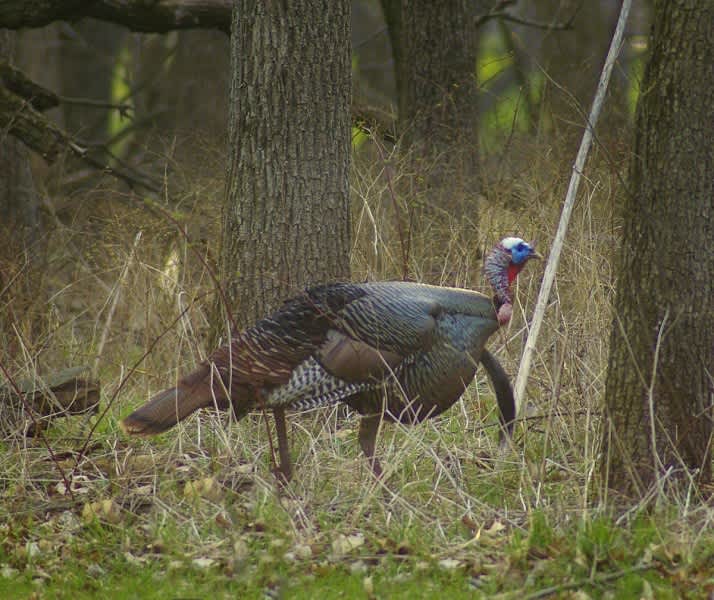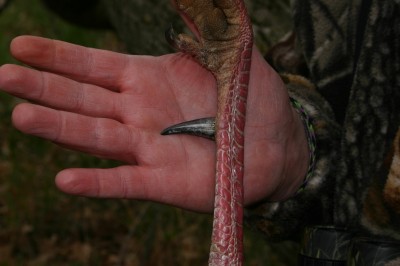When to Ditch the Dekes to Bag Your Bird
Joe Martino 02.24.14

Most turkey hunters, especially those that are new to it, feel that is always a necessity to use decoys when turkey hunting. The truth is, however, that there are times and situations where lugging them around is not only unnecessary, but possibly even futile.
There are those cantankerous, wary old gobblers who are nearly unkillable by typical turkey hunting methods. I have hunted such birds, and in doing so figured out that decoys will not do you any good on these guys. The birds I am talking about are the ones that either won’t gobble at all, or that will only gobble once or twice on the roost, never to be heard from again after they pitch down.
I have hunted several birds like this and learned the hard way that sometimes being successful at getting a crack at them usually requires extreme stealth, rather than luring them in. On these types of gobblers, scouting pays huge dividends. Killing these birds requires that you know their habits. On the birds like this that I have hunted, calling and decoys would do nothing but drive them away. On most of these gobblers, the more I called, the faster they left, and decoys did nothing to help me either.
They know the game. They are dominant birds and they are not going to be duped that way. They are with hens nearly all day, and nothing you can do is going to tempt them. About the only way to wrap your tag around the leg of one of these gobblers is to put yourself in a position where he and his hens like to frequent, and hope you are there when he shows up. That’s it.
The amount of cover also plays a role in determining whether I will use decoys or not. When overlooking open fields or in relatively open woodlots with little cover, I always opt for decoys. The reasoning is this: as a gobbler closes the distance in response to your calling, there is a good chance he might know the jig is up if he doesn’t see the hen anywhere in sight that is supposedly making those seductive yelps. In other words, when hunting open terrain and calling, a longbeard is apt to hang up if he doesn’t physically see the hen. Likewise, if a gobbler is standing out there in the open strutting, he is likely to play the, “you are the hen, you come to me” card and not budge.

If, on the other hand, I am in thick cover in tight quarters, I will usually leave the decoys in the truck. My theory? In this type of situation, I prefer to make the gobbler come looking for the hen. Unlike in sparse cover where he may get edgy if he doesn’t see a hen where the calling is coming from, when hunting in dense cover, you can use it to your advantage to lure him in close.
Late in the spring season is another time I may opt-out on using decoys. No, not merely because I am tired of dragging them all over the landscape with me by that point (well, that might be a little true) but also because the hens are spending a lot more time on the nests in the waning days of the season, leaving gobblers more susceptible as they get lonely. I have always favored hunting the last few days of the season for this very reason. The birds become easier to call in and are more willing to cover some ground to do so. Remember that thing I mentioned earlier about thick cover? Well, the woods are a lot thicker with vegetation in mid-May than they were a few weeks earlier in April, meaning that in most setups, a longbeard will have to naturally come in closer in order to find his would-be mate.
In closing, decoys are not always a requirement in killing a spring longbeard. They usually are recommended, though. But for gobblers that run away at most conventional hunting methods, their importance is diminished. Sure, there are times when not having dekes out will cost you a bird, but in certain situations, they just aren’t necessary.

